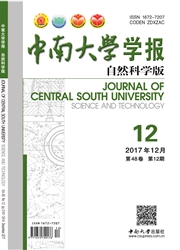

 中文摘要:
中文摘要:
为了分析非采暖空调环境下人体热反应的时变特征,以在校健康大学生为受试对象,在全年4个季节里开展人体热舒适生理实验测试,记录主要热环境参数,研究人体客观生理指标感觉神经传导速度(vsc)、测点皮肤温度(tskin)、整体热感觉投票(TsV)以及局部热感觉投票(TSVlocaa1)随停留时间变化的响应过程。研究结果表明:在同一季节里,vsc,‰和TSV的时变特征具有一致性;在冬季和过渡季节(春季和秋季),vscSnrsk|n随停留时间的延长呈下降趋势并逐渐趋于稳定,下降量在冬季最大,过渡季节次之,而在夏季”sc和fskin仅在微小范围内波动;TsV和Tsvlocal的时变特征均在冬季最显著,夏季和过渡季节基本在舒适范围内波动。这说明停留时间是影响人体热舒适的1个重要因素;为满足室内人员健康舒适的热环境的设计与控制提供参考,并为生理指标的测试延迟时间提供一定的依据。
 英文摘要:
英文摘要:
In order to study the time-varying characteristics of people's responses to thermal comfort in free-running environment, a physiological experiment was conducted in a free-running building in four seasons, and the subjects were all healthy college students. Sensory nerve conduction velocity (Vsc), skin temperature of measuring point (tskin) and thermal environmental parameters were tested; the subjective thermal sensation questionnaires were filled out by subjects simultaneously. The results show that in a certain season, Vsc, tskm and people's whole thermal sensation votes (TSV) have the same changing trend with time; in winter and transition seasons (Spring and Autumn), Vsc and ts~ show a declining trend to be a stable value, but with largest decrement in winter. While in summer, Vsc and t~ only fluctuate within a narrow range. For TSV and local thermal sensation votes (TSVloca0, they all have significant time-varying characteristics in winter and fluctuate with comfort range in summer and transition seasons. This demonstrates that the retention time is also an important factor that affects human thermal comfort from both physiological and psychological aspects especially in cold environment. The results provide a better design to control the indoor thermal environment for the occupants' health and comfort, and determine the measuring time of physical parameters on the basis of the time needed for stability.
 同期刊论文项目
同期刊论文项目
 同项目期刊论文
同项目期刊论文
 Investigation of sleep quality under different temperatures based on subjective and physiological me
Investigation of sleep quality under different temperatures based on subjective and physiological me Assessing Adaptive Thermal Comfort Using Artificial Neural Networks in Naturally-Ventilated Building
Assessing Adaptive Thermal Comfort Using Artificial Neural Networks in Naturally-Ventilated Building Occupants'; adaptive responses and perception of thermal environment in naturally conditioned univer
Occupants'; adaptive responses and perception of thermal environment in naturally conditioned univer Physiological Expression of Human Thermal Comfort to Indoor Operative Temperature in the Non-HVAC En
Physiological Expression of Human Thermal Comfort to Indoor Operative Temperature in the Non-HVAC En Climatic Strategies of Indoor Thermal Environment for Residential Buildings in Yangtze River Region,
Climatic Strategies of Indoor Thermal Environment for Residential Buildings in Yangtze River Region, 期刊信息
期刊信息
